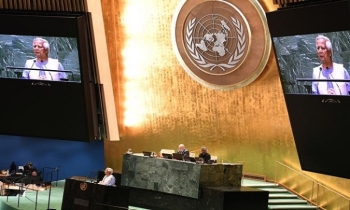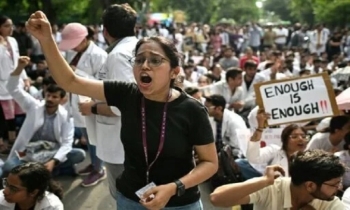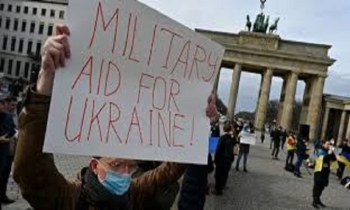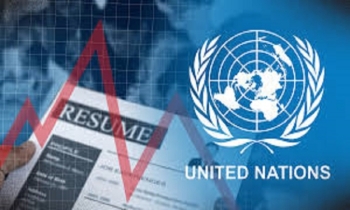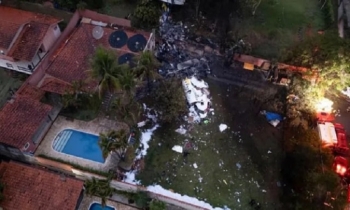Fresh protest rocks Philadelphia after another police shooting
BI Report || BusinessInsider
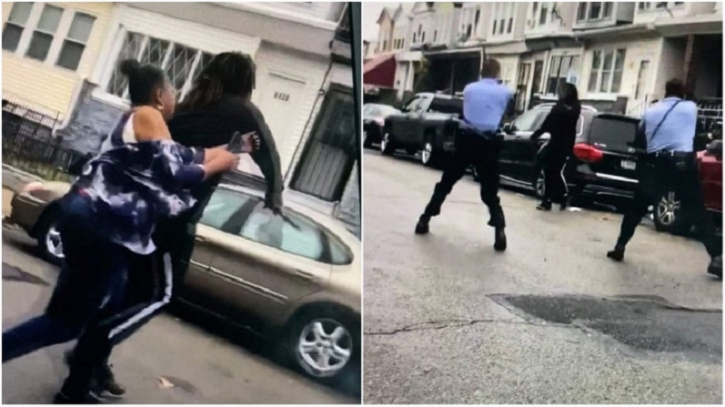
(On left) Wallace`s wife trying to calm her husband. (On right) Moments before police fired shots
Hundreds of protesters have marched through the US city of Philadelphia on the second night of the protest after police fatally shot a black man on Monday.
National Guard, as well as police reinforcements, have already been deployed in Philadelphia and officials claimed that at least 30 officers got hurt during the first night of clashes.
The police also accused protesters of looting and ransacking businesses during the unrest.
What we know about the shooting
Police spokeswoman Tanya Little told news agency AP that Walter Wallace, 27, was holding a knife when the two police officers approached, and instead of following orders to drop the weapon he “advanced towards them”.
Police went to the spot as a response to reports of a man with a weapon in the area.
Both officers fired several times, hitting Wallace in the shoulder and chest, Tanya Little said.
One of the officers drives him to a hospital, where he was pronounced dead. The CCTV footage of the area also shows the same thing happening..
Meanwhile, the family of the victim Wallace told BBC that he was suffering from a mental health crisis when officers opened fire on him.
A lawyer representing Wallace’s family said that he is suffering from bipolar disorder, and his wife told officers about the illness before they shot him.
Bipolar disorder is a mental illness marked by extreme shifts in mood.
Wallace’s father also told the Philadelphia Inquirer that his son had mental health issues and was on medication.
“Why didn’t they use a Taser?” he asked.
At a press conference on Tuesday, officials said that the officers didn’t carry any stun guns. They were wearing body cameras and both fired seven shots each.
Meanwhile, Wallace's family lawyer said that they called for an ambulance to help deal with Walter Wallace's mental issues, not the police.
Instead, two police officers arrived, lawyer Shaka Johnson was quoted as saying by the Inquirer.

